The BIRKAN saga.
Episode 3: The war years and a new beginning (1939 - 1950)
The Second World War almost destroyed the substance of the company. In July 1944, Birkner & Kandlbinder had to inform their customers that both their company premises and their private home, including all storage and cellar rooms, had been destroyed in heavy bombing raids. Not only the goods, but also all documents had been lost. They asked to be informed of any outstanding orders and to be patient until the completely burnt stock had been replaced (see below original letter).
The makeshift accommodation in Munich's Blutenburgstraße, from where this letter was sent, was also bombed out a few months later. The business fled from Maxvorstadt to the Haidhausen district, where at least three addresses are documented in the following years. However, business operations were maintained – albeit with difficulty – even in half-destroyed rooms or damp cellars, as relatives recalled years later. However, the paper shortage in the late war period also brought many printing presses to a standstill. In order to survive, Maria, Alois Kandbinder's wife, made handbags and aprons from blanket material at the sewing machine, which could be exchanged for food.
After the end of the war, the problems were far from over. First of all, authorisation from the American military government was needed to continue operations. Worse, however, was the prevailing shortage in all areas, of basic foodstuffs as well as all kinds of materials (see also Alois Kandlbinder's letter to a business friend). The movement of goods was initially severely restricted by the occupying forces and the procurement of materials was difficult. Many certificates and stamps were required in order to be allowed to supply customers, especially in another occupation zone. Newspaper printers first had to prove in the form of “certificates of urgency” that they would not be able to publish without BIRKAN printing blankets.
Alois Kandlbinder celebrated his 70th birthday in 1948, the year of the currency reform – after which things slowly started to pick up again. So he wasn't thinking about quitting yet. The three of them (together with his wife Maria and Ferdinand Birkner) rebuilt the company, re-established business relations with foreign countries and endeavoured to return to quality and security of supply.
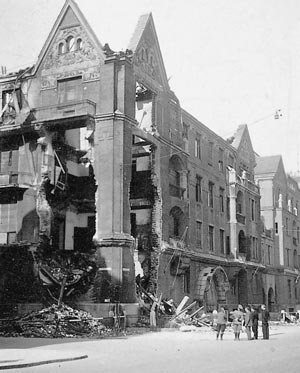
Many houses in Munich's city centre looked like this after the war (here is a picture from Schwabing; source: Wikimedia). Probably also the building at Gabelsbergerstraße 53 in the beautiful Maxvorstadt neighbourhood, the headquarters of Birkner & Kandlbinder oHG until July 1944.
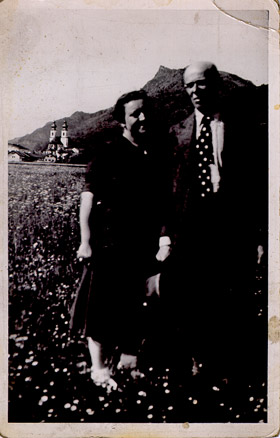
A short break from the war: Maria and Alois Kandlbinder in 1942, somewhere in Upper Bavaria.
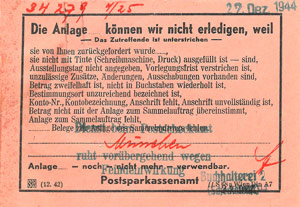
Due to “enemy action” on the Munich post office, the cheque of an Austrian customer could not be delivered (1945).
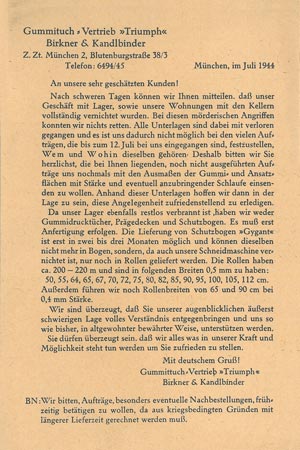
July 1944: Customers are informed that the company premises have been completely destroyed (English translation).
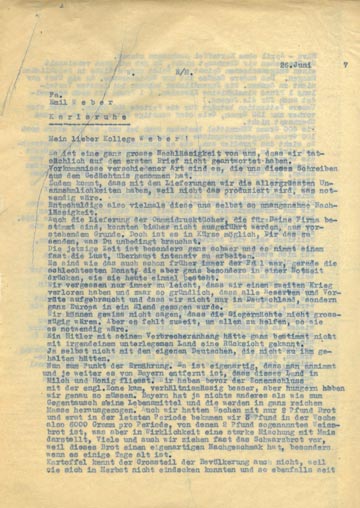
“We don't see vegetables at all... ”
An unimaginable food shortage dominated the post-war years. In this letter dated 1947, Kandlbinder refutes rumours that the Bavarians were better off than the rest of the Germans (English translation).
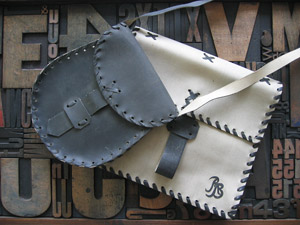
Necessity is the mother of invention: stylish bags made from blanket material
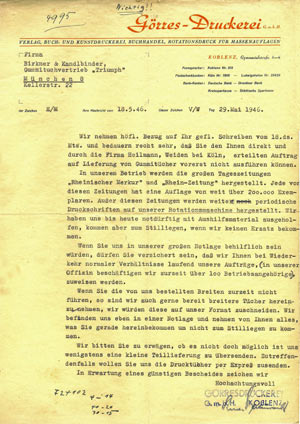
Urgent order from a large newspaper printer in the Rhineland (1946)
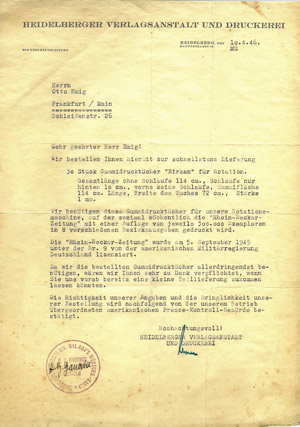
Urgent order with stamp of the American Information Control Division (1946)
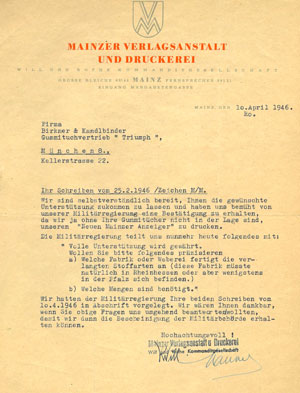
There was to be no imbalance between the occupation zones. Imports of goods were often only authorised with proof of raw material exports in similar quantities (1946)
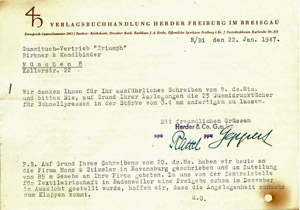
Sometimes, printers had to organise the raw materials for their order by themselves... (1946)
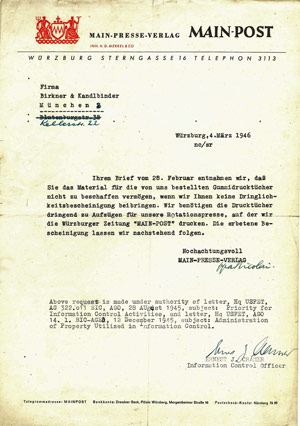
The newspaper Main-Post was also only allowed to be delivered after presentation of a certificate of urgency (1946)
